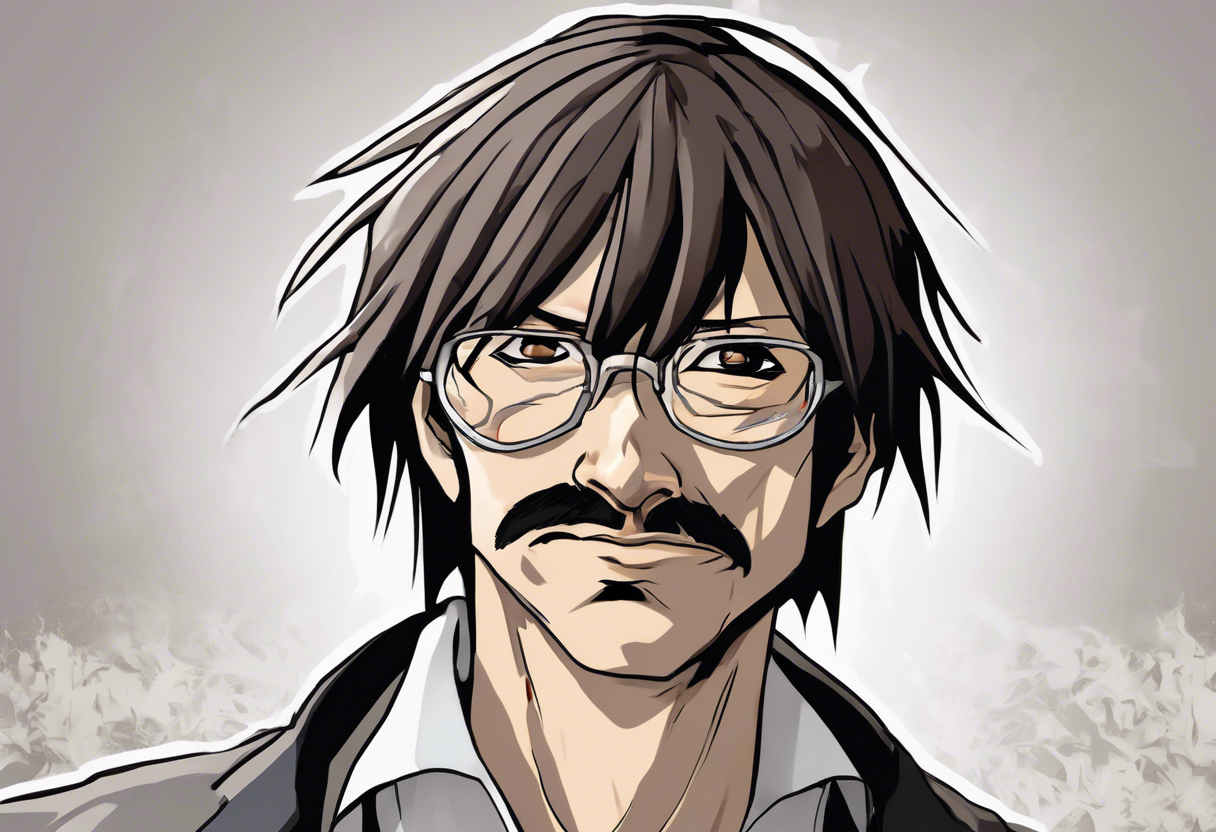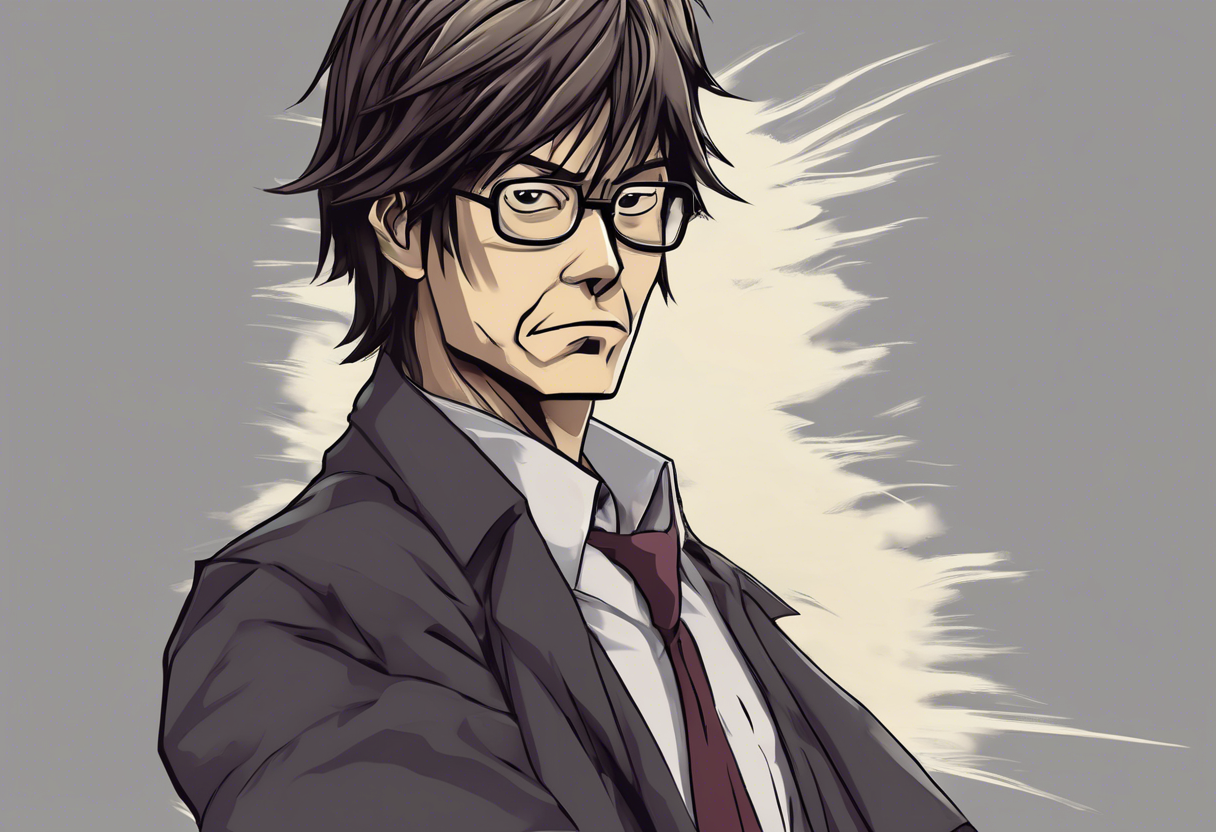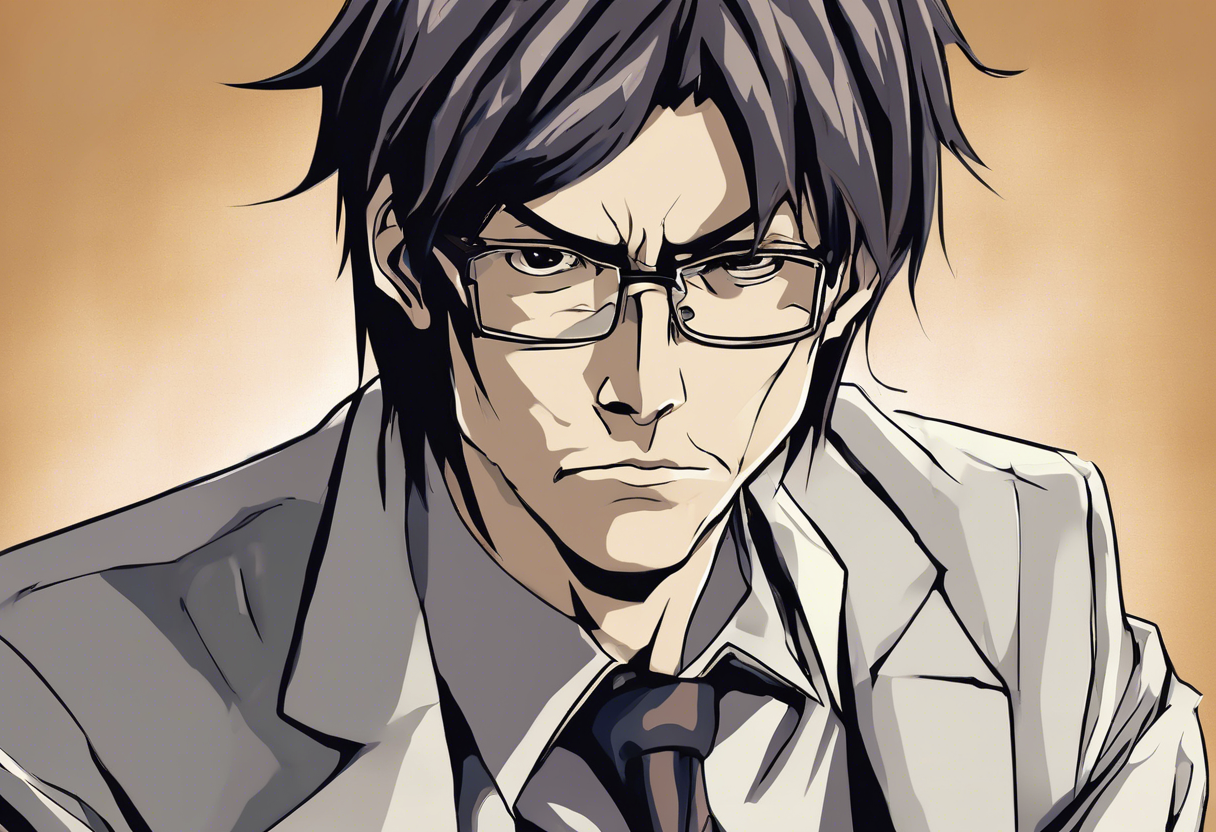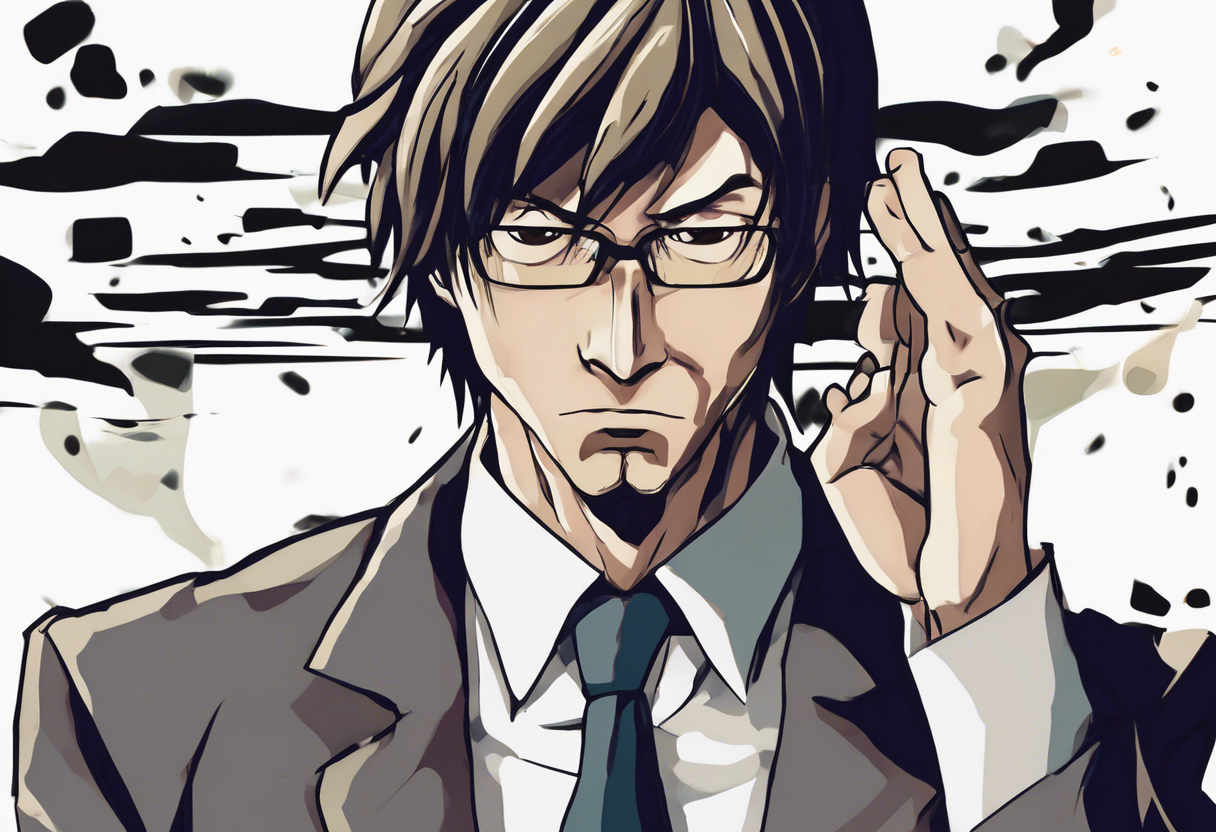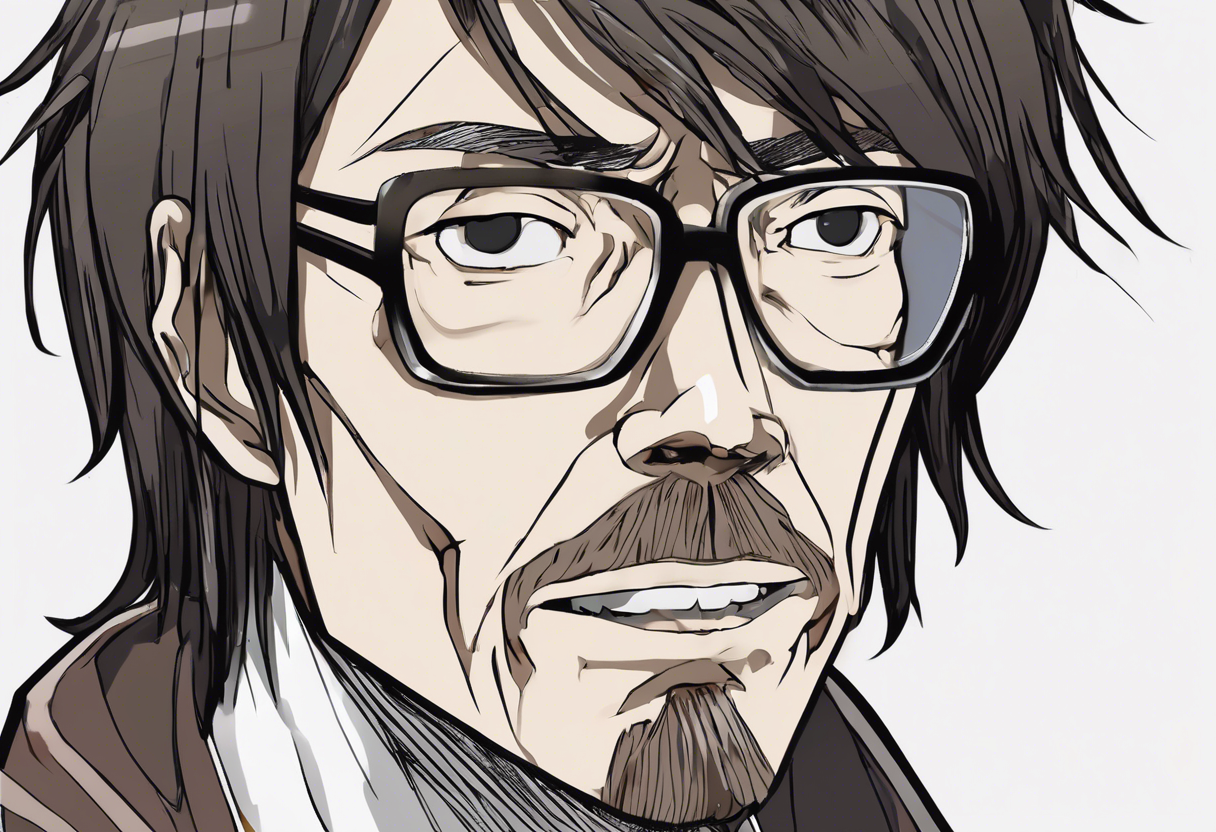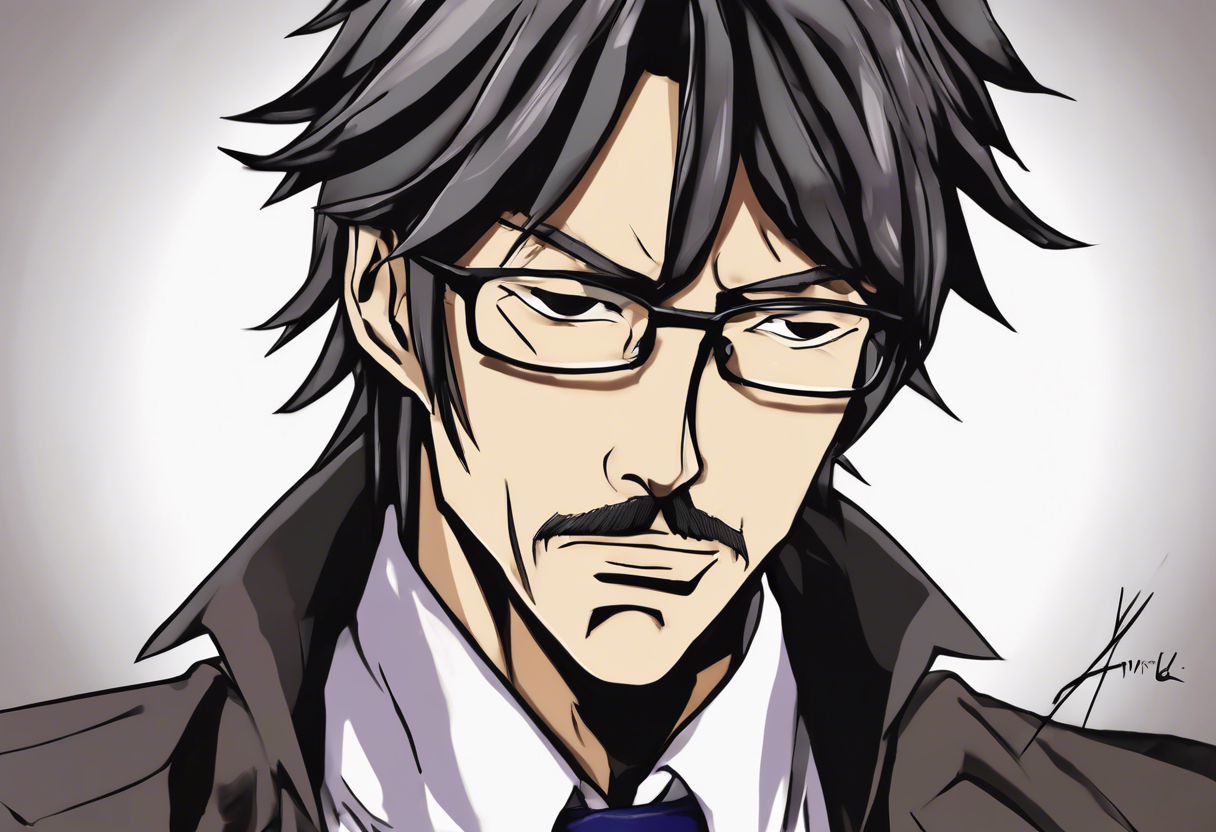Contents
Soichiro Yagami: The Complexities of Duty and Family in Death Note
Introduction
Soichiro Yagami is a pivotal character in the anime and manga series Death Note, created by Tsugumi Ohba and illustrated by Takeshi Obata. As the father of the main protagonist, Light Yagami, and the chief of police, Soichiro embodies a complex mix of duty, family loyalty, and moral integrity. His character is deeply rooted in Japanese cultural values, particularly those of Confucianism, and his actions significantly influence the narrative of Death Note.
Soichiro’s creation reflects Ohba’s intention to explore the human condition through characters with nuanced motivations and conflicts. Unlike his son Light, who is driven by a desire to impose his own brand of justice, Soichiro is guided by a strong sense of duty as a police officer and a deep commitment to his family. This dichotomy makes Soichiro a compelling and relatable character, especially in the context of the series’ exploration of justice, morality, and the consequences of power.
Role in the Story
Soichiro Yagami plays a crucial role in the investigation to capture Kira, the alias adopted by his son Light. As the head of the task force assigned to this case, Soichiro works closely with the enigmatic detective L to uncover the identity of Kira. His involvement is marked by several key decisions and events that highlight his character.
One of Soichiro’s most notable actions is his participation in L’s plan to test Light and Misa Amane, a potential suspect, by pretending to take them to an execution site. This plan, which involved Soichiro’s convincing acting and the use of a blank pistol, was a critical moment in the investigation and demonstrated Soichiro’s willingness to follow through with difficult and risky strategies to achieve justice [1].
Soichiro’s persistence in the Kira case, despite the dangers and personal costs, is another significant aspect of his storyline. Unlike many other detectives who quit the case to protect themselves, Soichiro remained steadfast, driven by his duty as a police officer and his determination to see justice served [1].
However, Soichiro also makes mistakes that impact the investigation. For instance, his impatience and desire to act quickly led him to expose limited intel on the Yotsuba corporation prematurely, which L warned could make things worse. This error underscores Soichiro’s human frailties and the challenges of balancing urgency with careful planning [1].
The personal toll of the investigation is also evident in Soichiro’s life. When his daughter Sayu is kidnapped by Mello, Soichiro’s desperation leads him to follow Mello’s directions and hand over the Death Note, resulting in his daughter’s safe return but also in his decision to quit the police force. This decision, however, is later criticized by Near, highlighting the complexities of Soichiro’s emotional and professional struggles [1].
Character Analysis
Soichiro Yagami’s character is defined by his strong sense of duty, family loyalty, and moral principles. He values his family above all else and is deeply committed to his role as a police officer. This commitment is rooted in a Confucian ethos, where duty and honor are paramount. Soichiro’s actions often reflect a Kantian perspective, where he believes that humans have intrinsic value and should never be used as means to an end [2].
Soichiro’s personality is marked by his stubbornness and work ethic. He is a workaholic who often neglects his personal life to pursue justice, a trait that aligns with his son Light’s own stubborn streak, though their motivations differ significantly. Soichiro’s dedication to his work is so intense that his family often has to deliver clothes to him at the police station due to his long working hours [2].
Despite his strengths, Soichiro has several flaws. His impatience and emotional reactions can lead to rash decisions, such as his premature exposure of the Yotsuba corporation or his decision to quit the police force after saving his daughter. These flaws make him a more relatable and human character, highlighting the challenges of balancing personal and professional responsibilities.
Soichiro’s development throughout the series is also noteworthy. He faces numerous moral dilemmas, particularly in his interactions with L and later with Near. His refusal to allow criminals to die as a means to an end, even if it would help solve the case, underscores his moral integrity and commitment to justice. This stance often puts him at odds with other characters who are more willing to bend moral rules to achieve their goals [2].
Themes and Symbolism
Soichiro Yagami embodies several key themes in Death Note, including the importance of duty, the complexity of justice, and the moral implications of power. His character serves as a counterpoint to Light’s, highlighting the differences between a justice system based on law and one based on personal judgment.
Soichiro’s commitment to his duty as a police officer symbolizes the importance of upholding the law and ensuring justice is served through legal means. This contrasts sharply with Light’s belief in imposing his own justice, which leads to a form of vigilantism that challenges the very fabric of society [3].
The theme of family is also deeply intertwined with Soichiro’s character. His love and protection for his family drive many of his actions, and his inability to bring himself to harm his son, despite knowing Light’s true identity as Kira, is a poignant example of this. In some adaptations, Soichiro’s decision to commit suicide rather than kill his son further underscores the depth of his familial loyalty and the moral dilemmas he faces [2].
Cultural Impact
Soichiro Yagami has had a significant cultural impact, both within the Death Note fandom and beyond. His character has been well-received by fans for his complexity and the moral depth he brings to the story. In adaptations such as the Death Note drama and musical, Soichiro’s role has been expanded upon, further exploring his emotional and moral struggles.
The cultural significance of Soichiro can also be seen in how he reflects traditional Japanese values. His actions and decisions are often guided by Confucian principles of duty, honor, and family loyalty, making him a character who resonates deeply with Japanese audiences. The song "Honour Bound and Bound by Honesty" from the Death Note musical, which is sung by Soichiro, enhances this Eastern perspective, highlighting his commitment to these values [2].
Critical Reception
Soichiro Yagami has received positive critical reception for his nuanced portrayal and the depth he adds to the narrative. Critics have praised his character for providing a moral anchor in a story filled with complex ethical dilemmas. His interactions with L and Near are particularly noteworthy, as they highlight the different approaches to justice and the moral implications of each.
However, there have also been varying interpretations of Soichiro’s role. Some critics have argued that his decision to quit the police force after saving his daughter was a mistake, while others have seen it as a reflection of his emotional and personal struggles. These differing views underscore the complexity of Soichiro’s character and the depth of the themes he embodies [1].
Legacy
Soichiro Yagami’s legacy in the world of anime and manga is significant. He has inspired other characters in similar genres who grapple with complex moral issues and personal dilemmas. His commitment to duty and family has made him a memorable and relatable character, and his role in Death Note continues to be a subject of discussion and analysis.
In contemporary discussions, Soichiro’s character remains relevant as a symbol of moral integrity and the importance of upholding the law. His story serves as a cautionary tale about the dangers of vigilantism and the need for a justice system that is fair and impartial. As such, Soichiro Yagami continues to be an important figure in the Death Note universe, offering insights into the human condition and the complexities of justice.
References
- https://www.cbr.com/death-note-soichiro-yagami-right-wrong/
- http://www.deathnotenews.com/news/nathaniel-overthinks-death-note-01-kant-and-confucius-in-death-note-via-soichiro-yagami
- https://www.academicblock.com/life-and-leisure/worlds-top-anime/death-note
- https://en.wikipedia.org/wiki/List_of_Death_Note_characters
- https://www.tiktok.com/@lightworshipper/video/7295725431989275936

